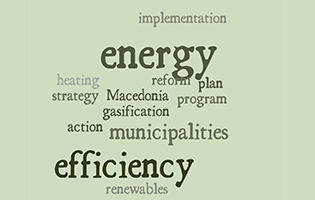
Analytica is pleased to announce that starting from September 2015 will be implementing the research project “Assessment of Macedonia’s efforts in countering violent extremism, view from civil society”. The duration of the project will be 12 months and it includes desktop and field research activities.
The overall goal of the project is to contribute to the Macedonian efforts in countering violent extremism by producing a policy study that would analyse country’s progress in addressing the challenges stemming from the increased number of foreign fighters going to Syria and Iraq.
Support the national authorities and other stakeholders in planning and decision-making by providing in-depth analysis on trends, patterns and local specifics when it comes to Macedonian citizens fighting in Syria and Iraq.
Previous publications by Analytica on the subject of radicalization and the phenomenon of foreign fighters:
Are we putting at risk yet another of our freedoms - the freedom of movement? – January 2015
We did criminalize it – now what? Policy brief September 2014 Western Balkans response to the foreign fighters threat – September 2014.
Is it time to prepare a “response strategy” for Macedonian nationals fighting in Syria? – January 2014.
Chapter VII solution for Syria? More healing time needed after the Libyan experience – September 2013
Responsible persons for contact:
Andreja Bogdanovski This email address is being protected from spambots. You need JavaScript enabled to view it. ;
Kaltrina Selimi This email address is being protected from spambots. You need JavaScript enabled to view it. .
* This project is funded in part through a U.S. Embassy grant. The opinions, findings, and conclusions or recommendations expressed herein are those of the implementers/authors and do not necessarily reflect those of the U.S. Government.
Овој проект е делумно поддржан од Амбасадата на САД. Мислењата, откритијата, и заклучоците, или препораките изнесени овде се на имплементаторот (ите)/авторот(ите), и не ги одразуваат оние на Владата на САД.
Ky projekt është pjesërisht i mbështetur me grant nga Ambasada e SHBA-ve. Mendimet, zbulimet dhe konkluzionet ose rekomandimet e paraqitura këtu janë të implementuesit/autorëve dhe nuk i reflektojnë domosdoshmërisht ato të Qeverisë së SHBA-ve.





